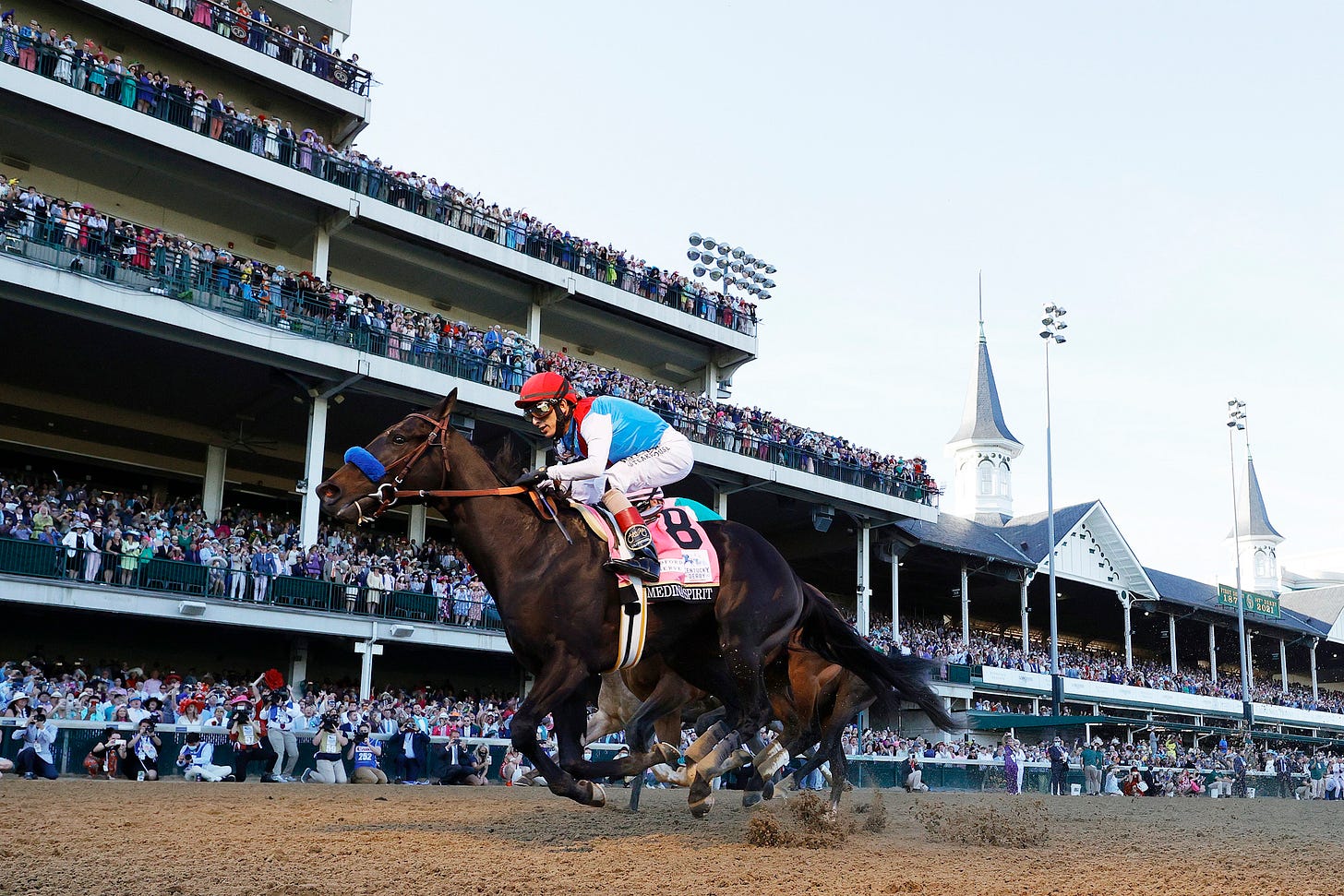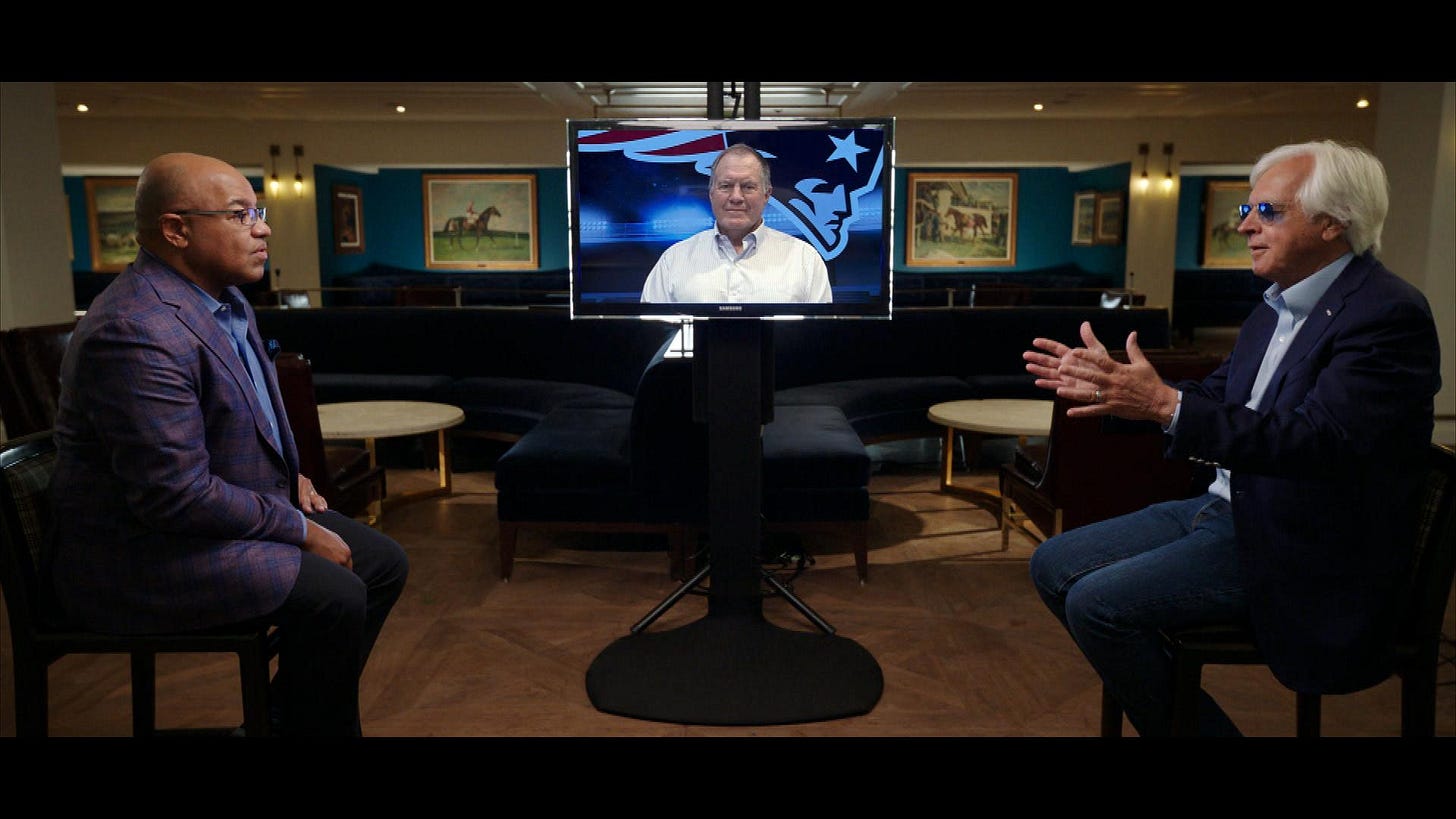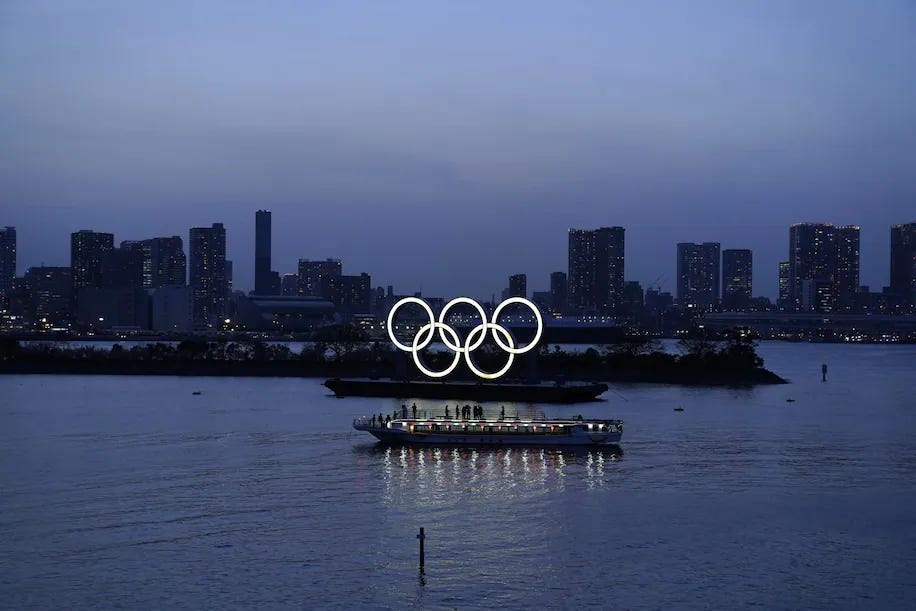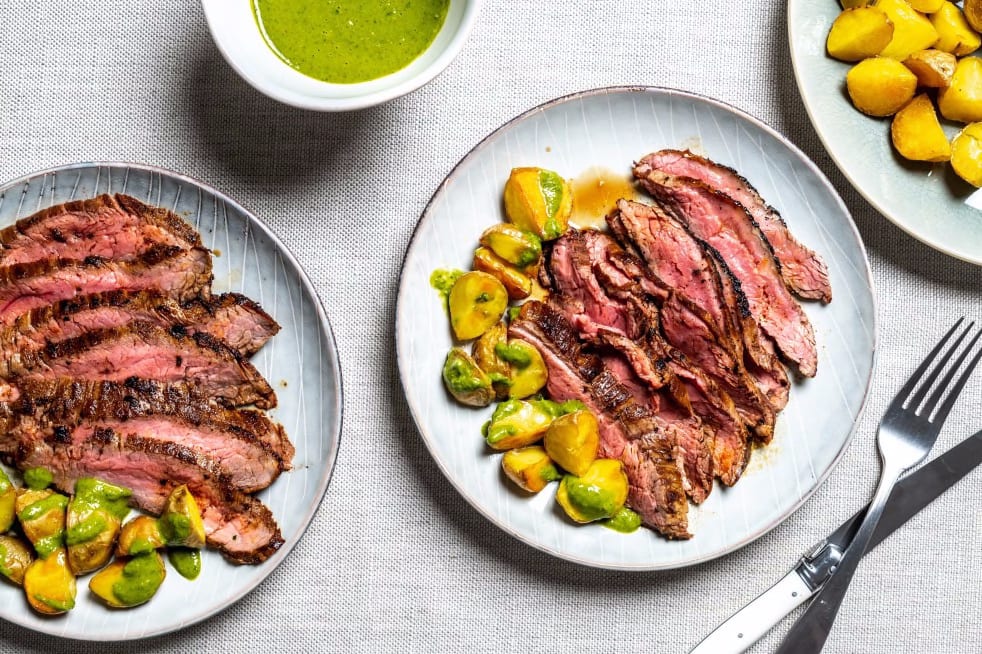Micah's Read of the Week, Vol. 41
Uber and Lyft's driver shortage, rental cars, Kentucky Derby controversy, the Olympics, recipe corner, and more.
Hello, and welcome to Micah’s Read of the Week.
This is a newsletter filled with things Micah Wiener finds interesting.
Check out the introduction post here and the entire archive of previous newsletters here.
Please, subscribe and share with a friend.
The world is coming back, but where are the Uber drivers?
If you’ve tried to take a ride recently, you’ve certainly noticed that Uber and Lyft aren’t the same as they were before the pandemic. Wait times are up. Fares are more expensive. Both companies are facing historic driver shortages.
Uber and Lyft are facing a supply shortage, as returning and newly vaccinated customers again flood the apps, only to find out there aren’t enough drivers to serve them. The companies cited drivers’ ongoing hesitance regarding fears of contracting the coronavirus and lingering concerns that demand has dried up, even as customers in many major cities have resumed riding. Uber and Lyft are offering incentives and paying out what they say are record wages as they attempt to lure drivers back to the apps.
Demand was down by as much as 75 percent in the United States as the pandemic set in, the companies said. Now Uber faces a supply shortage even as more than two-thirds of the ride-hailing demand has recovered, when gross bookings are compared with April 2019, according to Khosrowshahi.
These companies have a problem. And they are throwing money at it, trying to entice drivers to come back. But, of course, Uber is not a company to be trusted.
Some of the drivers said they realized the ride-hailing gigs were not the same jobs they signed up for in the early days of the apps. In the early days, they were incentivized with promotions and what they regarded as sustainable wages, taking more than $1,000 in pay from a full workweek. But as the apps took off, pay models changed and earnings slowly dwindled as drivers saw their weekly pay fall into the hundreds.
“It’s very much not a career,” said Lyft driver Bruce Blood, 34, of Los Angeles, who has taken advantage of the higher wages but has also dealt with the fallout. “Passengers are angrier. When they get in my car, they are angrier about the time they’ve had to wait or the price that they’re being charged.”
Also interesting is the dramatic shift in Uber’s business model.
Uber is also a changed business. Wednesday’s earnings report showed, for example, that Uber Eats made up almost two-thirds of the company’s gross bookings, or the total it takes in from customers. That was a complete reversal from the first quarter of 2019, when rides made up about 80 percent of the business.
Speaking of automotive supply and demand…
Tourists in Hawaii are driving U-Hauls because rental cars are so expensive
Here’s an eye-catching headline, with some large forces at play across the country.
With rental cars hard to find or extremely expensive — and travel numbers rebounding — some desperate tourists in Hawaii have turned to alternate forms of transportation: U-Hauls.
Kaleo Alau, president of U-Haul Co. of Hawaii, said in a statement last month that there had been a “considerable uptick” in rentals from visitors to the islands. “We realize this demand is occurring when tourists are unable to secure a rental car, or they learn that our rental fleet options are more affordable,” Alau said in the statement.
He told local TV station KHON2 that the company had taken calls from people who were concerned when they saw the trucks at the beach.
“We’re like, ‘Let’s go and check it out, make sure it’s not stolen,’ and no, it’s just somebody at the beach,” Alau said.
This isn’t just a problem in Hawaii.
Rental cars have been in short supply in warm-weather destinations such as Hawaii, Arizona and Florida since earlier this year as more people have started to feel comfortable venturing out. The surge in travelers was more than rental car companies could handle after selling off big portions of their fleets when the pandemic sent their business into a tailspin.
So, if you’re planning a trip, it might be wise to book the rental ASAP.
As a result, travelers who are used to booking flights and hotels first — and leaving rental cars as an afterthought — have been in for a rude awakening.
For a weekend in mid-July, an Expedia search for rental cars in Honolulu shows vehicles starting at $249 a day. For comparison, an eight-foot U-Haul truck during the same time in Honolulu costs $19.95 a day, plus 89 cents per mile.
Chris Woronka, a leisure analyst at Deutsche Bank who follows rental car companies, told The Washington Post last month that he did not anticipate a quick solution.
“I am not overly optimistic that we are going to have all the rental cars we need for peak summer travel season,” he said at the time.
Between increased Uber rates and higher rental fees, it’s wise to budget a few more dollars for vacation transportation. You’re welcome for the heads up.
I love the Kentucky Derby
I don’t know much about horse racing, but I love the Derby. It’s a great television show. The visuals, the pomp & circumstance, the celebrities, the bourbon, the storylines. I cannot get enough. I love every minute of the four-hour pre-race show.
Then the race happens. And two minutes later, it’s over. But then we hear from the owner, and the jockey, and the trainer. And this year we heard from legendary trainer Bob Baffert. He won his record 7th Derby this year with underdog horse Media Spirit.
Baffert has been under fire of late because his horses have experienced a series of failed drug tests. And now he’s under fire again as the Derby winner tested positive for Betamethasone (whatever that is). Baffert is promising to fight back, showing up Sunday with his lawyer in-tow.
Monday morning update: Baffert has some hilarious excuses:

H/t: Brett
I can’t help but think back to the pre-race show. NBC profiled Baffert, and he and Mike Tirico were joined by a legendary coach with a similar knack for pushing the limits of the rules: Bill Belichek.
Sunday, Bill’s friend Donald shared some thoughts.
Should this controversy turn me off to the Derby? Probably. But I know it won’t. And considering I pay attention to horse racing about 2 days a year, it won’t change anything. Next year, come the first Saturday in May, I’ll be tuned in with a mint julip in hand.
Speaking of controversial NBC sports properties…
I can’t stand the Olympics
The Olympics are scheduled to take place this summer after a one-year COVID delay. I like sports. I enjoy competition. I love a TV spectacle. I hate the Olympics. Outside of basketball, I try not to watch any of it. Why? Because the Olympics represent the worst of international sport: rampant corruption, the willing embrace of dictators and anti-democratic forces, lavish expense, and the worst of international politics and propaganda.
I simply can’t put all the bullshit aside and just enjoy the games.
This piece from the great Sally Jenkins says it all better than I can. Japan should cut its losses and tell the IOC to take its Olympic pillage somewhere else:
The IOC derives its power strictly from the Olympic “host contract.” It’s a highly illuminating document that reveals much about the highhanded organization and how it leaves host nations with crippling debts. Seven pages are devoted to “medical services” the host must provide — free of charge — to anyone with an Olympic credential, including rooms at local hospitals expressly reserved for them and only them. Tokyo organizers have estimated they will need to divert about 10,000 medical workers to service the IOC’s demands.
Less than 2 percent of Japan’s population is vaccinated. Small wonder the head of Japan’s medical workers’ union, Susumu Morita, is incensed at the prospect of draining mass medical resources. “I am furious at the insistence on staging the Olympics despite the risk to patients’ and nurses’ health and lives,” he said in a statement.
To be charitable, this is at best an international display of misplaced priorities in the middle of a still-raging global pandemic.
Jenkins also points to the obscenely devastating financial losses associated with the games.
The Olympics always cost irrational sums — and they lead to irrational decisions. And it’s an irrational decision to host an international mega-event amid a global pandemic. It’s equally irrational to keep tossing good money after bad.
At this point, money is the chief reason anyone is even considering going forward with a Summer Games. Japan has invested nearly $25 billion in hosting. But how much more will it cost to try to bubble 15,000 visitors, with daily testing and other protocols, and to provide the security and massive logistics and operating costs? And what might a larger disaster cost?
In September, a report out of Oxford University’s business school found that the IOC has consistently “misled” countries about the risks and costs of hosting. Example: The IOC pretends that a contingency of about 9.1 percent is adequate to cover unforeseen expenses.
The true average cost overrun on a Summer Games? It’s 213 percent.
The IOC intentionally encourages excess. It mandates elaborate facilities and events for the sake of revenue, most of which it keeps for itself while dumping the costs entirely on the host, which must guarantee all the financing. The IOC sets the size and design standards, demands the hosts spend bigger and bigger — against all better judgment — while holding close the licensing profits and broadcasts fees. Tokyo’s original budget was $7 billion. It’s now four times that.
Of course, even if Japan’s leaders were to kick the Olympic Committee to the curb, there’s always a plutocrat waiting to welcome them with open arms.
This is why virtually the only government leaders that will have anything to do with the IOC anymore are thugocrats such as Vladimir Putin and Xi Jinping, who can coerce labor and spend limitlessly for prestige. Over the past 20 years, other potential hosts have dried up. Among those who have wisely said no to the IOC: Barcelona, Boston, Budapest, Davos, Hamburg, Krakow, Munich, Oslo, Rome, Stockholm and Toronto. Los Angeles Mayor Eric Garcetti, who wrested away key concessions from the IOC for the 2028 Games, has observed that most cities “will never say yes to the Olympics again unless they find the right model.” This is where the barons’ gluttony has led them.
Speaking of Washington Post sports columnists.…
Thomas Boswell retired
Boswell worked at the Post for 52 years. Six decades as a sportswriter is a pretty good run, especially at one newspaper. Boswell is a giant, and his career will never be matched in our current or future media environment. His goodbye column this week was excellent:
I’ve spent my life having a long, rich conversation with friends and neighbors in my hometown about our mutual love of sports. I’ve had a sinfully good time.
That’s why leaving will be bittersweet. I don’t think “He retired after 52 years” requires explanation! But, briefly, here goes anyway: For many of us, age eats energy, both physical and mental. When that energy is what you always had in the largest quantity and your standards refuse to change with the calendar, the result is that the job — to be done right — gets more and more and everything else gets less and less. Nobody’s fault.
What will hurt is missing the new stories, that day’s plot twist, the wisecrack or insight, the controversy or candor, then telling it to readers within hours or minutes.
Recipe Corner
Cumin-Rubbed Flank Steak With Chimichurri Potatoes
The summer of flank steak continues. Shouts to my mother who suggested substituting portabellas for protein this week. Happy Mother’s Day!
14 ounces to 1 pound small Dutch Gold or Yukon Gold potatoes
3/4 cup extra-virgin olive oil, plus more for drizzling
Kosher salt
1 large bunch curly parsley (about 2 1/2 ounces without stems)
1 large clove garlic
1/2 medium shallot
1/2 teaspoon crushed red pepper flakes
3 tablespoons red wine vinegar
1/2 lemon
1/2 teaspoon ground cumin
1 teaspoon granulated garlic (a.k.a. garlic powder)
1/2 teaspoon Spanish smoked paprika (pimenton)
1 1/2 pounds flank steak (about 3/4-inch thick) (or some portabella mushroom caps)
Preheat the oven to 400 degrees. Rinse the potatoes then cut them into quarters, placing them on a rimmed baking sheet as you work. Drizzle them with about a tablespoon of oil and toss to coat, then season them lightly with salt. Roast (middle rack) for 30 minutes.
Meanwhile, coarsely chop the parsley, garlic and shallot, transferring them to a blender as you work. Add 3/4 teaspoon of salt and the crushed red pepper flakes. Pour in the 3/4 cup of oil and the vinegar, then squeeze in a tablespoon of the juice from the lemon half. Blend on low speed so the mixture breaks down a bit, then on medium-high speed to form an almost-creamy chimichurri sauce. The yield is about 1 1/2 cups.
Heat a large dry skillet or grill pan over medium-high heat. Toss in the ground cumin and toast for 15 or 20 seconds, just until fragrant, then transfer to a small bowl to cool. Return the pan to medium-high heat.
Add the garlic powder and smoked paprika to the toasted cumin; use the bottom of a small bottle or a pestle to crush and blend the spice rub mixture.
Pat the steak (or mushrooms) dry with paper towels. Brush it lightly with oil on both sides, then apply the spice rub all over, pressing it into the meat. Grill the steak.
The potatoes should be done by this time, looking crisped on the outside, puffed and tender when pierced with a knife. Cut the steak against the grain in thin, diagonal slices. Serve warm with the roasted potatoes; drizzle them with some of the sauce and pass the rest at the table.
Simple Poblano Cream Sauce
This easy sauce would be good as a dip for chips but also for raw or roasted vegetables. Here’s what I’m thinking: clean some carrots. Put them on a cookie sheet. Chop an onion into wedges. Toss that on there too. Dig into your cirsper. Got some broccoli? Maybe some bell peppers? Toss those on the sheet tray, add salt and some olive oil and roast the veg at 450 degrees. Serve with the sauce below.
3 medium poblano peppers (See NOTE)
1/4 cup Mexican crema, sour cream or Greek yogurt
3 medium cloves garlic
1/4 teaspoon cayenne
1/4 teaspoon kosher salt
Position a rack in the center of the oven and preheat to 450 degrees. Place the poblanos on a well-oiled sheet pan. Roast in the oven for about 15 minutes, until the peppers start to blister. Or grill the peppers.
Transfer the peppers to a bowl and cover with a clean kitchen towel or a plate for 5 minutes, then peel the thin skins from the poblanos.
Cut the tops off the peppers and remove the seed pods.
In a food processor, combine the poblanos, crema (or sour cream or yogurt), garlic, cayenne, and salt. Process until smooth. Transfer the cream to a bowl and serve at room temperature.
Where else can I find Micah content?
Podcasts: Mind of Micah, Back Door Cover, Too Much Dip
Twitter: @micahwiener & @producermicah (Why two twitters? It’s a long story)
Instagram: @micahwiener
LinkedIn: @micahwiener
Peloton: #badboysofpelly@micahwiener
Dispo: @micahwiener
Clubhouse: @micahwiener
Email: micahwiener@me.com










